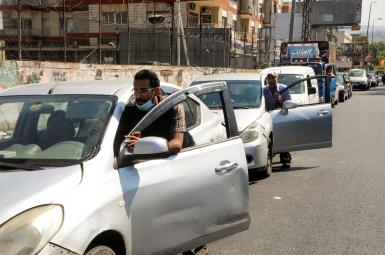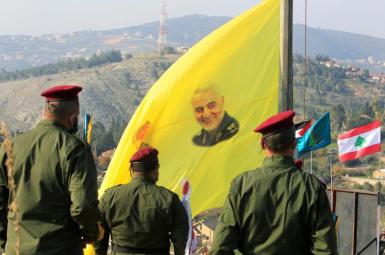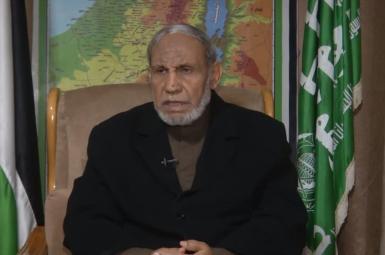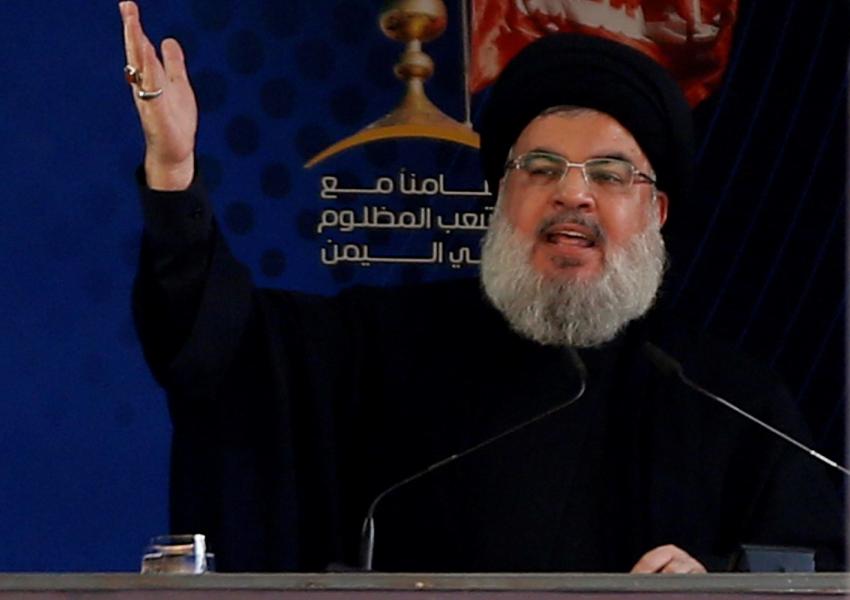
Hezbollah's Nasrallah Highlights Iran's Backing, Threatens Revenge For Soleimani
The leader of Lebanon’s Hezbollah claimed on Sunday [December 27] that his group has doubled the number of precision-guided missiles in one year and Israel has failed to prevent it from acquiring them.
In an end-of-year interview with the Beirut-based Al-Mayadeen TV, Hassan Nasrallah claimed his group has the capability to strike anywhere in Israel. Hezbollah has been receiving weapons and cash from Iran since its very inception in the early 1980s.
Following Tehran’s lead, it sent forces into Syria to defend Bashar al-Assad’s government as an insurgency gained momentum in 2012. Israel has been bombing Iranian and Hezbollah targets there for several years trying to prevent a further entrenchment of Iranian forces and shipment of weapons through Syria to Hezbollah in Lebanon.
Israel has expressed concern in recent months that Hezbollah is trying to set up production facilities to make precision-guided missiles.
Nasrallah repeated earlier remarks that Hezbollah and other Iranian allies must be careful in the last few weeks of President Donald Trump’s presidency. He called trump “angry” and “crazy”.
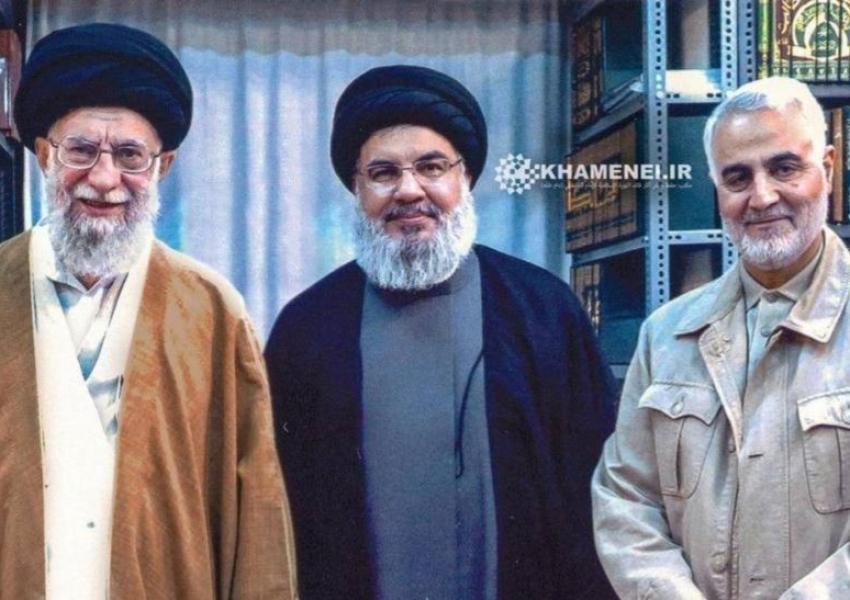
Hezbollah's Hassan Nasrallah (C) with Ali Khamenei and Qasem Soleimani (R). Published September 25, 2019
The Hezbollah leader who has been living in hiding for years, vowed Iran and its proxies will avenge the targeted killing of Qasem Soleimani, the former commander of Iran’s Qods (Quds) Force by an American air attack in Baghdad on January 3. Nasrallah said, “I am missing him a lot”. “That revenge is coming no matter how long it takes,” he told Al-Mayadeen TV, sitting with a picture of Soleimani to his left.
Nasrallah declared that Soleimani was instrumental in providing large amounts of money from Iran’s oil revenues to Hezbollah, in addition to weapons and missiles. Various estimates of Iran’s past financial assistance to the group range from $500-700 million annually. Currently, it is hard to gauge Iran’s ability to provide money given its dire financial situation resulting from US sanctions.
Nasrallah disclosed that after the 33-day war with Israel in 2006, Iran paid the rent and living expenses of 200,000 families for one year whose homes had been destroyed or damaged in Israeli attacks. The fact that Iran paid up to $30,000 to families in 2006 has been public knowledge in Lebanon. But the extent of the assistance is staggering in a country of four million people at the time. If the average handout to each family was $20,000, Iran spent at least four billion dollars that went mainly to the Shiite community.
Addressing the incoming U.S. administration of President-elect Joe Biden, Nasrallah said Iran would not negotiate with the US on behalf of its allies or discuss conflicts in the region. He said Tehran would talk with Washington only about the Iranian nuclear deal, from which Trump withdrew.
Biden has vowed to return to the 2015 nuclear deal that Trump withdrew from in May 2018 and demanded renegotiation that would include Iran’s “malign” behavior in the region.
With reporting by AP
